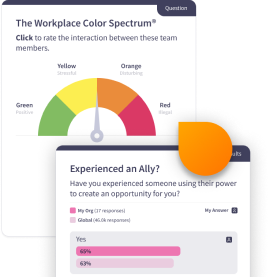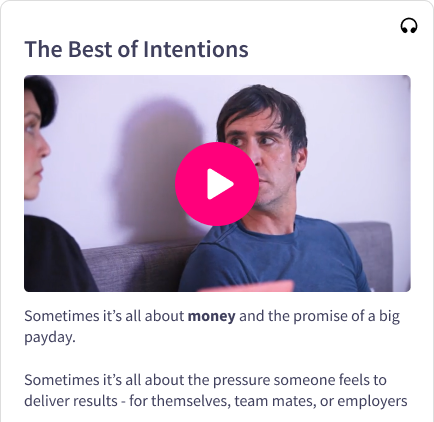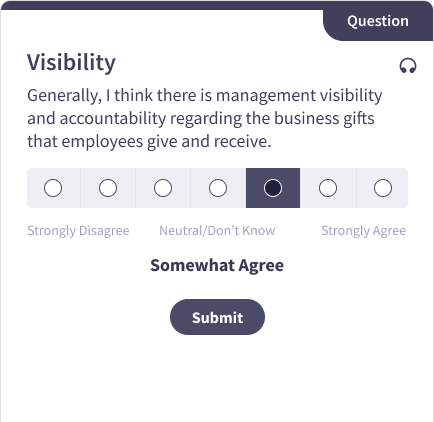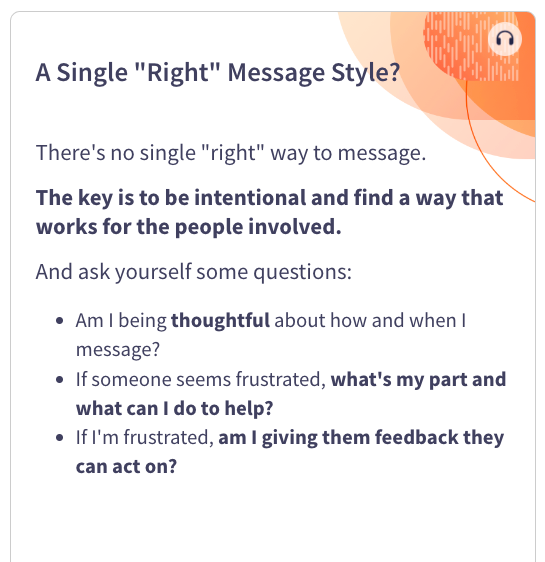
Balancing Emotions to Strengthen Relationships
Snap judgments are often times a biased reaction without taking a moment and choosing words wisely. When we make quick decisions about others, specifically in a healthcare setting, it creates the risk of escalating the problem.
Microlesson DescriptionIn this microlesson, we show how a doctor navigates a snap judgment and bias from a patient by practicing empathy and composure. Redirecting the conversation to the primary goal - caring for the patient. Like many professional settings, the need for allyship is also important here to create a more equitable, respectful workplace.
Microlesson Features
- Employee sentiment pulsing questions that provide leaders with insights into their workforce's core cultural competencies
- Emtrain's Expert Answers tool, enabling employeees to submit anonymous questions about sensitive issues.
- Rich, contemporary video scences illustrating key concepts through realistic scenarios
- A data driven, skill-based approach to eLearning that establishes a shared language for employees.

Related Resources
Related Trainings
Frequently Asked Questions
Below are answers to common questions that employees and managers have about this topic. These FAQs provide a preview of what you’ll learn in this microlesson and why it matters.
Q
Why does addressing bias often lead to conflict?
Addressing bias often leads to conflict because it challenges deeply held beliefs and may trigger defensiveness or denial.
Q
How can employees challenge bias respectfully?
Employees can challenge bias respectfully by focusing on the behavior, using “I” statements, and inviting dialogue rather than accusation.
Q
What risks arise if bias is ignored to avoid tension?
If bias is ignored to avoid tension, risks include reinforcing inequities, weakening culture, and exposing the organization to liability.
Q
How can managers train employees to speak up without escalating?
Managers can train employees to speak up without escalating by teaching de-escalation techniques, providing scripts, and modeling constructive responses.
Q
Why is empathy important when confronting bias?
Empathy is important when confronting bias because it helps frame conversations with understanding rather than blame, making change more likely.



